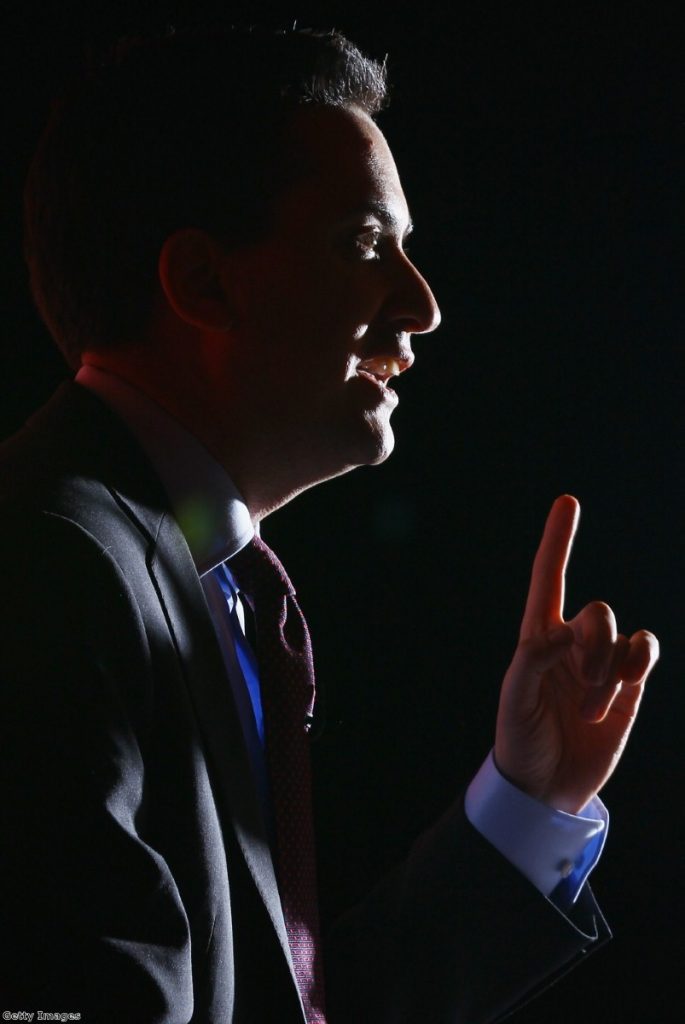Miliband tries to calm anxieties on immigration without alienating liberals
Ed Miliband walked a fine line today, as he tried to move Labour onto a policy position on immigration which would bring back white working class voters without alienating liberals.
In a major speech which celebrated Britain's diversity while also pledging tough action on integration, Miliband demanded only people who spoke English should be given public-facing, public sector jobs but promised support for migrants being exploited by unscrupulous private landlords.
"We should celebrate multi-ethnic diverse Britain. We are stronger for it – and I love Britain for it," he said.
"But at the same time we know there is anxiety about immigration and what it means for our culture.


"There are issues about the pace of change. The capacity of our economy to absorb new migrants has outrun the capacity of some of our communities to adapt. The last Labour government made mistakes in this regard."
Miliband also tried to bring together the notion of a confident, diverse Britain seen during the Olympics and this week's Census data with concerns around segregation, especially in northern cities.
"Some people say that what we should aim for is assimilation whereby people who have come here do so only on the condition that they abandon their culture," he said.
"People can be proudly, patriotically British without abandoning their cultural roots and distinctiveness.
“But there is another idea we should also reject: the belief that people can simply live side by side in their own communities, respecting each other but living separate lives, protected from hatreds but never building a common bond – never learning to appreciate one another. We cannot be comfortable with separation."
The Labour leader proposed that people are barred from publicly-funded, public facing jobs unless they can speak English.
He also called for English language teaching for newcomers to be funded ahead of non-essential written translation materials. He stopped short, however, of calling for the reversal of cuts to English classes for immigrants implemented by successive governments.
On housing, Miliband pledged to crack down on criminal landlords who pack people into overcrowded accommodation via a beefed-up licensing system and harsh fines.
He also promised to end the practice of using forced indebtedness and tied-in housing, which sometimes locks migrant workers into harsh conditions.
"It is far too easy for unscrupulous landlords to prey on newcomers to our country," he said.
"The mayor of Newham, Robin Wales, says that the record is of one house with 38 people of whom 16 were children.
"Let's be clear: this is terrible for people living there and it also terrible for people in the neighbourhood. We can't expect people to embrace their neighbours, to build communities, if it means 38 people living next door."
On employment, Miliband pledged a ban on recruitment agencies advertising only for workers from certain countries and tougher enforcement of minimum wage so foreign workers could not undercut domestic workers.
Miliband became leader of the Labour party intent on stemming the haemorrhaging of support it experienced in white working class areas during the 2010 general election.
The loss of the party's core supporters came from several reasons, but analysts are sure the perception of uncontrolled immigration was a major factor.
Many in the party were horrified when Gordon Brown responded to that perception by borrowing rhetoric from the BNP, notably when he promised 'British jobs for British workers'.
The new Labour leader, whose parents were refugees during World War Two, wants to take a different course by pledging reassurances to the core vote based on left-wing values.









